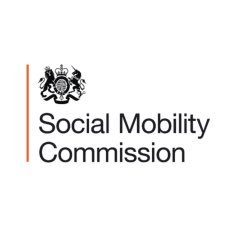Tom Slatter, The Brokerage’s Senior Manager of Impact, Insights and Systems discusses the recent changes to our candidate eligibility criteria
What kind of job did your highest earning parent do when you were 14? That’s the question that we started asking our young people here at The Brokerage at the start of this term.
I have to admit, to begin with I was a little cautious about how this question might be received. Even though it is a voluntary question, it might be interpreted as intrusive, as too personal. After all, doesn’t the job our parents do give away quite a bit of information about our lives? People can have all sorts of different assumptions about what counts as a good job to be shouted about or a bad job not to be mentioned. Jobs come with different salaries, different amounts of social kudos, different levels of access to the good things in life. All of that can be pretty personal.
So far it looks like I needn’t have worried. Brokerage candidates have been happy to answer the question. Some have ticked the ‘prefer not to say’ box, and a few have asked why we are asking. However, once we explained, they were happy to provide the information.
So, why do we ask this?
The Brokerage is a social mobility charity, here to help young people from less advantaged backgrounds access professional jobs. That means we need to have eligibility criteria to make sure we are helping the right people.
Over the years our criteria have evolved. At first we focussed simply on state school students with C or higher in English and Maths GCSE, criteria we still have. In 2017 we started asking about parents’ experience of higher education and whether young people had ever been eligible for free school meals. The new question about parental occupation is in addition to these two. If a young person studies at a state school, achieves those GCSE grades, and meets at least one of the other three criteria, they will be eligible for our programmes.
The question about parental occupation comes from the Social Mobility Commission’s recommendations for what organisations should ask to work out the socioeconomic backgrounds of their staff. It involves picking your parent’s job from a category. Some of the examples are:
- Modern professional & traditional professional occupations such as teacher, solicitor, or police officer.
- Senior, middle or junior managers or administrators such as: finance manager, chief executive,
- Routine, semi-routine manual and service occupations such as: postal worker, machine operative.
We are not alone in asking this, and there are good reasons for doing so. In the UK it is still the case that you are 60 times more likely to also have a professional job if your parents did a professional job, compared to those whose parents do working class jobs. Refer to ‘State of the nation 2021: Social mobility and the pandemic’. People from less advantaged backgrounds are less likely to access those jobs, and The Brokerage, along with our partner companies are working to change this.

Accountancy firm KPMG are not one of our partners, but they are clearly thinking about the same things. Recently they set themselves the target for 29% of their senior staff to be working class, and they are using the same categories of jobs as recommended by the Social Mobility Commission here. They are also committing to programmes that help address this issue at other levels, not just senior management.
Through working with The Brokerage, our partners are committing to similar programmes with similar aims. While it’s a long standing issue, it’s also one we firmly believe can be solved.
What have we learned about Brokerage candidates?
I was not surprised to learn that significantly more of our young people have parents who do ‘working class’ jobs compared to the UK workforce as a whole. It’s a new criteria, so time will tell how these figures will be reflected across our entire candidate pool, but we now know that 100% of our young people meet at least one of our social mobility criteria, and 83% meet more than one of those measures.
The Brokerage will continue collecting this information and use it to inform our work. I’ll be particularly interested to see how this information intersects with ethnicity and gender, two other important issues that we know are related to socioeconomic background, work and earnings.
I’d also recommend that other organisations consider asking these sorts of questions of their workforce, just like our partner companies and just like KPMG. If we’re to make social mobility a reality, we’ll need to take action. The first step before doing that is to get the information so we know where and how to act.



 '
'